×
Filter Results
Filter Results
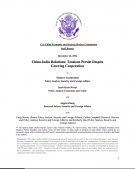
Staff Paper
This staff report provides an overview of areas of tension and cooperation in China-India relations. It also assesses the implications for the United States of the 2014 election of Prime Minister Narendra Modi in India, India’s evolving strategic calculations, and the growing Indian economy and role in global energy markets. Finally, it discusses areas of potential U.S.-India cooperation in the security and economic realms.
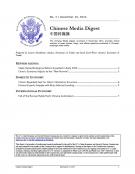
Research
Highlights of this edition: State-Owned Enterprise Reform Expected in Early 2015; China’s Economy Adjusts to the “New Normal”; China’s Repeated Fuel Tax Hikes Criticized as Excessive; Finance Experts Grapple with Risky Internet Lending; Fall of the Russian Ruble Hurts Chinese Automakers.

Staff Paper
China’s land reclamation activities at Fiery Cross Reef likely will result in its first airstrip in the disputed Spratly Islands, which would allow the People’s Liberation Army to alleviate some of its logistical and power projection deficiencies in the South China Sea. This paper analyzes the latest publically-available imagery of Fiery Cross Reef and assesses China’s possible uses for an airstrip.

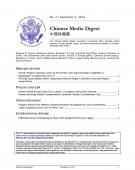
Research
Highlights of this edition: Former People’s Liberation Army Air Force Pilot Cites Improved Radar Capabilities in Dismissing F-22 Superiority over J-11; PLA Daily Lauds Disaster Relief Cooperation between People’s Liberation Army and People’s Armed Police; Phoenix Weekly Reveals Scale of Xu Caihou’s Corruption Only to Be Censored; Female University Student Compensated in Landmark Gender Discrimination Case; Progress Report from Ministry of Finance Proposes No Bailouts for Local Governments; China’s Response to the “Low Oil Price” Era; Difficulties Persist in Resuming Six-Party Talks despite North Korea’s Signal
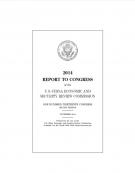
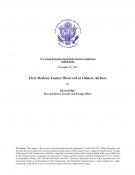
Staff Paper
This report examines the context and implications of satellite imagery of an IL-78/MIDAS air refueling tanker at a Chinese military airbase.
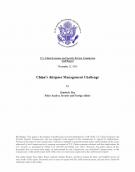
Staff Paper
As the number of civil aviation users increases and the aviation industry continues to mature in China, Beijing seeks to strike a balance between liberalizing its airspace to respond to growing commercial demands and retaining a strict military hold on airspace for the purpose of national security. This report explores China's efforts to reform air traffic control and airspace management, as well as challenges China may face as it seeks further reform.
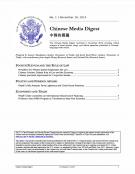
Research
Highlights of this edition: President Xi’s Plenum Speech Emphasizes the Law; Chinese Scholars Debate Rule of Law and the Economy; Chinese Journalist Imprisoned for Corporate Slander; People’s Daily Analyzes Party Legitimacy and China-Russia Relations; People’s Daily Comments on International Infrastructure Financing; Professor Sees EMBA Program as Tarnished by State-Run Economy

